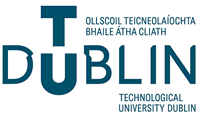Dr M-A Lawlor
No more applications being accepted
Competition Funded PhD Project (Students Worldwide)
About the Project
Project Description
A new dimension to the practice and ethicality of advertising to children has emerged as children increasingly embrace newer online platforms, such as interactive games, social networking sites and branded websites.
The nature of online marketing communications is different to that of traditional advertising in terms of the time spent online, the interactive nature of the experience, the benefits offered to users and the opportunities offered to marketers. The principal model that has been used to explain the development of a consumer’s knowledge with regard to advertising is Friestad and Wright’s (1994) Persuasion Knowledge Model (PKM).
The PKM illustrates how consumers can develop persuasion knowledge which facilitates an understanding of marketing / advertising tactics. However, in an online context, there may be a convergence of entertainment and commercial content and it follows that the development of agent knowledge (i.e. understanding of the brand owner’s intent) and persuasion knowledge (i.e. understanding of the tactics used by the brand owner) may be challenged in light of the immersive, fun and entertaining nature of online platforms such as social media.
This PhD research therefore seeks to explore young consumers’ recognition and evaluation of advertising and commercial messages in the context of social media such as social networking sites, social publishing platforms (e.g. blogs) and content sharing sites.
Student requirements for this project
Minimum 2.1 undergraduate degree (business/management discipline)
Funding Notes
The stipend is €10,000 per annum. The cost of EU academic fee will be covered for the duration of the scholarship. Non-EU applicants are eligible to take up the scholarships, but they may be required to fund the fee differential. Schools will make available a desk space, PC along with a modest bursary for travel, conferences and some limited materials.

 Continue with Facebook
Continue with Facebook

